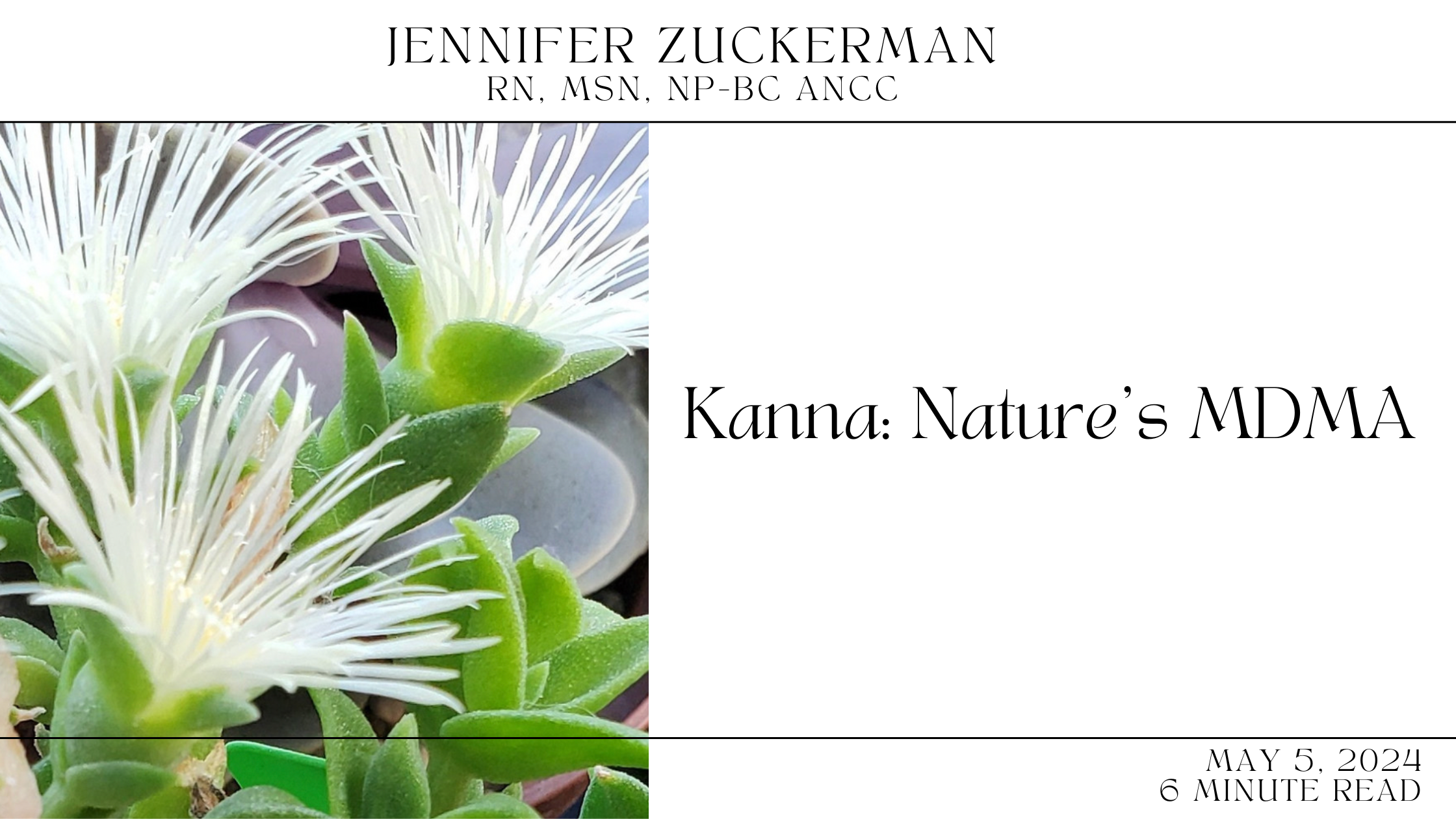Introduction
In the realm of natural remedies and alternative wellness practices, one fascinating botanical substance has been garnering attention for its potential benefits: Kanna. Derived from the plant Sceletium tortuosum, native to South Africa, Kanna has a rich history of traditional use among indigenous peoples for its mood-enhancing and stress-reducing properties. As interest in natural solutions for mental wellness continues to surge, exploring the potential of Kanna becomes increasingly pertinent.
At the heart of Kanna’s allure lies its ability to interact with the brain’s neurotransmitters, particularly serotonin and phosphodiesterase enzymes. Serotonin, often referred to as the “feel-good” neurotransmitter, plays a crucial role in regulating mood, anxiety, and stress levels. By inhibiting the reuptake of serotonin, Kanna may effectively increase its availability in the brain, leading to a sense of calmness and contentment.
Furthermore, Kanna contains alkaloids such as mesembrine, which have been studied for their anti-anxiety and antidepressant properties. These compounds are believed to modulate neurotransmitter activity, potentially alleviating symptoms of anxiety and depression without the adverse effects associated with conventional pharmaceuticals.
In addition to its mood-enhancing effects, Kanna has also shown promise in boosting cognitive function. Research suggests that the plant may enhance cognitive flexibility, attention, and memory recall, making it a valuable ally in promoting mental clarity and acuity.
Moreover, Kanna’s adaptogenic properties make it particularly intriguing for individuals grappling with chronic stress and fatigue. By supporting the body’s ability to adapt to stressors, Kanna may help restore balance to the nervous system, fostering resilience and promoting overall well-being.
Clinical Research
While traditional use provides a foundation for understanding Kanna’s potential benefits, scientific research offers further insights into its mechanisms of action and efficacy. Studies exploring its effects on serotonin reuptake inhibition, neurotransmitter modulation, and cognitive function contribute to our understanding of how Kanna may support mental wellness.
For instance, a study published in the Journal of Ethnopharmacology investigated the effects of Sceletium tortuosum extract on serotonin reuptake inhibition. The findings suggested that the extract exhibited significant serotonin transporter inhibition, potentially contributing to its mood-enhancing properties.
Another study, published in Phytomedicine, examined the anxiolytic effects of Kanna in rats. Researchers observed that treatment with Kanna extract led to a reduction in anxiety-like behavior, indicating its potential as a natural remedy for anxiety disorders.
Furthermore, research published in Psychopharmacology investigated the cognitive effects of Kanna in healthy human volunteers. The study found that participants who received Kanna extract demonstrated improved cognitive flexibility and attention compared to those who received a placebo, highlighting its potential as a cognitive enhancer.
Safety Considerations
While Kanna is generally regarded as safe when used responsibly, it’s essential to highlight potential risks and safety considerations. Like any supplement or botanical substance, Kanna may interact with medications or have adverse effects if consumed in excessive amounts.
Common side effects of Kanna may include mild gastrointestinal discomfort, dizziness, or headache. Additionally, individuals with underlying health conditions or those taking medications should consult with a healthcare professional before incorporating Kanna into their wellness regimen.
Furthermore, certain medications, such as selective serotonin reuptake inhibitors (SSRIs) or monoamine oxidase inhibitors (MAOIs), may interact with Kanna, potentially leading to serotonin syndrome or other adverse reactions. Therefore, it’s crucial to disclose all medications and health conditions to a healthcare provider before using Kanna.
Cultural and Historical Context
Understanding the cultural and historical significance of Kanna provides valuable context for its traditional use and healing properties. Indigenous peoples of Southern Africa, such as the San and Khoikhoi tribes, have utilized Kanna for centuries as a ceremonial plant and natural remedy for various ailments.
In traditional African medicine, Kanna was often prepared as a fermented or powdered extract and consumed for its mood-enhancing, analgesic, and appetite-suppressing effects. The plant held spiritual significance and was used in rituals to induce trance states, promote healing, and enhance social cohesion within communities.
Today, Kanna continues to be valued for its cultural heritage and therapeutic potential, serving as a bridge between ancient healing practices and modern wellness approaches.
User Experiences and Testimonials
Anecdotal evidence and personal testimonials from individuals who have used Kanna for mental wellness purposes offer valuable insights into its effects and potential benefits. Many users report experiencing a sense of calmness, relaxation, and improved mood after consuming Kanna supplements or extracts.
Users have shared their experience of using Kanna to alleviate symptoms of anxiety and stress, noting a noticeable reduction in tension and an increased ability to cope with daily challenges.
Others described how incorporating Kanna into their wellness routine helped improve focus and concentration, enhancing productivity and cognitive performance.
While anecdotal evidence cannot substitute for scientific research, these testimonials provide real-world perspectives on the potential benefits of Kanna for mental well-being.
Conclusion
In conclusion, Kanna represents a fascinating botanical substance with potential benefits for mental wellness. Its ability to interact with neurotransmitters, enhance cognitive function, and support stress resilience makes it a compelling option for individuals seeking natural remedies for mood disorders, anxiety, and cognitive decline.
While scientific research continues to uncover the mechanisms of action and efficacy of Kanna, it’s essential to approach its usage with caution and respect. Consulting with healthcare professionals, understanding safety considerations, and sourcing high-quality products from reputable suppliers are crucial steps in maximizing the benefits of Kanna while minimizing potential risks.
As interest in natural remedies and holistic approaches to health continues to grow, Kanna stands as a testament to the enduring relationship between nature and human well-being. By exploring its ancient roots, harnessing its modern allure, and embracing a spirit of inquiry, we can unlock the transformative power of Kanna and embark on a journey of healing, discovery, and holistic living in harmony with the wisdom of the ages.







Leave A Comment